Speaking Up, by Dennis O’Neil
 The comic book veteran was smiling as he leaned forward to read the lettering on the button fastened to my lapel: Let’s Legalize Pot. His mood changed instantly, to one of anger. He snatched the pin off my jacket, flung it into a wastebasket, and stalked from the room.
The comic book veteran was smiling as he leaned forward to read the lettering on the button fastened to my lapel: Let’s Legalize Pot. His mood changed instantly, to one of anger. He snatched the pin off my jacket, flung it into a wastebasket, and stalked from the room.
That was in 1965 and before I relate another incident from the same era, let me offer a quick clarification. I don’t like marijuana. Never have. The circumstances of my rather bumpy life have, at times, put me close to it and of course, like William Jefferson Clinton and maybe just one or two other pols, I sampled it and found it usually did little for me. Which is not to say I didn’t have addiction problems. No siree. My love of alcohol cost me a marriage and a job and a lot of dignity and some trips to the hospital. But pot? Usually just made me cough. That button? Well, although the evil reefer was not my drug of choice, I thought that if booze and nicotine were legal, evil reefer should be, too.
This was not conventional wisdom in 1965 (and still isn’t) and, although, as we discussed last week, comics guys like the man I outraged were outsiders, they were not rebels. No, they were outsiders by birth and circumstance, not choice, and their values were pretty much those of mainstream America. They wore suits and ties to work, they paid taxes and owned homes, went to church or temple, voted, behaved themselves. Many had served honorably in the war. They were patriots, they were good citizens. They knew, because they had not learned otherwise, that our nation was menaced by godless Communism, that elected officials were as honorable as they themselves were, that what was good for General Motors was, in fact, good for America, that the atomic bomb was an invaluable part of Liberty’s Arsenal and, oh yeah, that the Devil’s Weed would likely corrupt any youth who got a whiff of it. They were my parents, my relatives, and the folks in my old neighborhood.


 Well, it is certainly a superheroic weekend here in New York, and maybe where you are, too. The latest Batman flick has already set one box office record and who knows what others it may yet conquer? The second Hellboy movie is still kicking box office butt. And a while ago, I was paging through the Arts and Leisure section of my Sunday New York Times when I saw a familiar face staring up at me from a photo: my old colleague Frank Miller, grim and determined looking. The accompanying story was about Frank’s writing and directing of The Spirit movie, based on work by yet another old friend, the late Will Eisner, produced by yet another old friend, Michael Uslan. (Good heavens! Whom don’t I know?)
Well, it is certainly a superheroic weekend here in New York, and maybe where you are, too. The latest Batman flick has already set one box office record and who knows what others it may yet conquer? The second Hellboy movie is still kicking box office butt. And a while ago, I was paging through the Arts and Leisure section of my Sunday New York Times when I saw a familiar face staring up at me from a photo: my old colleague Frank Miller, grim and determined looking. The accompanying story was about Frank’s writing and directing of The Spirit movie, based on work by yet another old friend, the late Will Eisner, produced by yet another old friend, Michael Uslan. (Good heavens! Whom don’t I know?)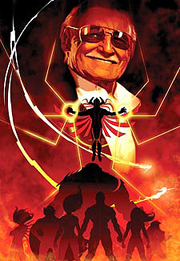 Right up front this week, let’s publish our (forgive me for shouting) RECOMMENDED READING: Danny Fingeroth’s Write Now Magazine from TwoMorrows.
Right up front this week, let’s publish our (forgive me for shouting) RECOMMENDED READING: Danny Fingeroth’s Write Now Magazine from TwoMorrows.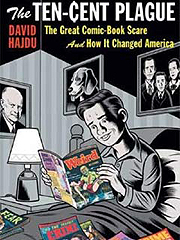 Over the past few years, I’ve come to believe that not everyone gets the same education, even if schools and transcripts are identical. Some folk mentally compartmentalize: church goes here, family here, school stuff here, life in general there. So when they pass tests on what they’ve heard in classrooms, and at the end of a span of time, usually16 years and some august personage hands them a rectangle full of fancy lettering, they’re done with it. No more schooling, and no learning above what’s needed to live comfortably. Schooling in its compartment yonder, not touching this compartment, which is where we live.
Over the past few years, I’ve come to believe that not everyone gets the same education, even if schools and transcripts are identical. Some folk mentally compartmentalize: church goes here, family here, school stuff here, life in general there. So when they pass tests on what they’ve heard in classrooms, and at the end of a span of time, usually16 years and some august personage hands them a rectangle full of fancy lettering, they’re done with it. No more schooling, and no learning above what’s needed to live comfortably. Schooling in its compartment yonder, not touching this compartment, which is where we live. Sunday afternoon. Two hundred and four days left before he gallops on back to Texas and that consarn brush that always seems to need clearing.
Sunday afternoon. Two hundred and four days left before he gallops on back to Texas and that consarn brush that always seems to need clearing. As I begin to type this, on a rainy Sunday afternoon, there are only 211 days left before someone else lives at 1600 Pennsylvania Avenue, near the Potomac. I tell you this, not because it has anything to do with what follows, but to perhaps lend a note of cheer to your hour.
As I begin to type this, on a rainy Sunday afternoon, there are only 211 days left before someone else lives at 1600 Pennsylvania Avenue, near the Potomac. I tell you this, not because it has anything to do with what follows, but to perhaps lend a note of cheer to your hour. I don’t know when I first saw an English edition of Barefoot Gen. It was probably sometime in the mid 70s, when I was editing for the modest enterprise that has become the mighty Marvel Entertainment. In those days, a lot of stuff crossed editorial desks and we read most of it, if not all. So: Japanese comics? Sure, I’ll give it a look. It was probably my first experience with manga and I remember feeling a mild taste of cognitive dissonance – a perceived disconnect between subject and form. (I am choosing to ignore, because it’s a bit off-subject, the hybrid of cartooning and illustration that’s most superhero art.)
I don’t know when I first saw an English edition of Barefoot Gen. It was probably sometime in the mid 70s, when I was editing for the modest enterprise that has become the mighty Marvel Entertainment. In those days, a lot of stuff crossed editorial desks and we read most of it, if not all. So: Japanese comics? Sure, I’ll give it a look. It was probably my first experience with manga and I remember feeling a mild taste of cognitive dissonance – a perceived disconnect between subject and form. (I am choosing to ignore, because it’s a bit off-subject, the hybrid of cartooning and illustration that’s most superhero art.)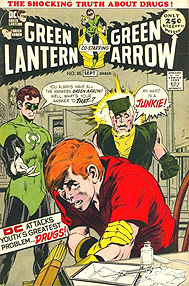 Vinnie Bartilucci said it better than I did. Commenting on a couple of columns that asked, sort of, if the science in comics should be real, Vinnie wrote, “… once a writer chooses to mention actual, proper science, he should get it right.”
Vinnie Bartilucci said it better than I did. Commenting on a couple of columns that asked, sort of, if the science in comics should be real, Vinnie wrote, “… once a writer chooses to mention actual, proper science, he should get it right.”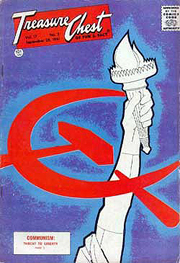
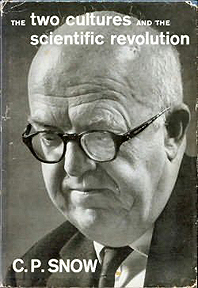 The following will be about a column I didn’t write and it’s Vinnie Bartilucci’s fault. But that’s okay. I forgive him.
The following will be about a column I didn’t write and it’s Vinnie Bartilucci’s fault. But that’s okay. I forgive him.








